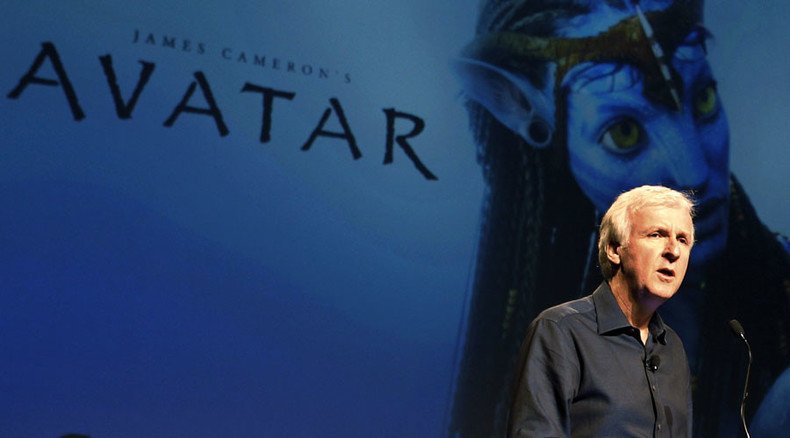Chechen author steps up claims Cameron's 'Avatar' is ‘ripoff’, wants in on profits

A Chechen author is accusing US director James Cameron of plagiarism over his 2009 blockbuster ‘Avatar’ and is filing a complaint to the public prosecution office in the Russia’s Stavropol Region. The writer says he deserves a third of Cameron's profits.
Ruslan Zakriyev insists that some parts of a novel he had written earlier were used in the film without prior consent, Russian News Service reports, citing the author’s lawyer.
“We have filed a legal complaint to the Stavropol Region prosecution office demanding an investigation and we are also preparing a court appeal,” Zakriyev’s attorney said, as quoted by the Russian media.
A Stavropol Region court earlier turned down Zakriyev’s claim, ruling the case was outside its jurisdiction as the defendant, Cameron, lives in another country.
‘Twitter’s trying to copyright jokes now? Good luck with that!’ http://t.co/hzFgijfDuapic.twitter.com/Gzo9SambAU
— RT (@RT_com) August 12, 2015Zakriyev publicly claimed in March 2015 that he wants US$1 billion compensation from Cameron for the alleged plagiarism. The writer claimed the director had included a significant part of his novel ‘Secret Weapon’, published online in 2002, in the screenplay of his 2009 movie.
“Cameron should give us $1 billion out of the $3 billion he earned. I want to create my own studio and make movies. I have many works but no studio,” Zakriyev said at the time, as quoted by the Russian News Service.
Zakriyev also submitted his novel to an expert council at Chechnya's writers union, which ruled out that some episodes from ‘Avatar’ were in fact identical to those he had written.
READ MORE: India creates database of 1,500 yoga poses to thwart Western patent claims
According to Zakriyev’s attorney, when he tried to reach Cameron by correspondence, the director told him he would have to “line up” behind those who made similar claims, as over 10 American authors had claimed their works had been used in his film.
Cameron also noted that a lawsuit filed in Russia would have no legal force in the United States and, even if it was “surprisingly” sustained, it would be redirected against the Russian film distributors.
“You will have to exact payment from your countrymen,” Cameron said in a letter to Zakriyev, as quoted by the Russian News Service.
The not-so-free encyclopedia: Wikipedia blocks 381 accounts over cash-for-edits scams http://t.co/MpV4FSIAXSpic.twitter.com/OMfivCfNuA
— RT (@RT_com) September 2, 2015Speaking about the plagiarism issue, Cameron noted that the Strugatsky brothers – among the best-known Soviet and Russian sci-fi authors, with many of their works translated and published in English - might expect some compensation, had they filed a similar lawsuit, but not Zakriyev.
In 2010, one of the brothers, the late Boris Strugatsky, accused Cameron of lifting ideas for ‘Avatar’ from his and his brother's 1962 novel ‘Noon: 22nd Century’. He did not, however, make an official complaint.
“The Americans have borrowed our idea – it’s very unpleasant,” Strugatsky was quoted as saying. “But I won’t take them to court. Or will I?”
‘Avatar’ became the all-time top-grossing movie, with total box office results amounting to almost $3 billion. The film has won several Academy Awards, Golden Globes, a BAFTA and even a Russian Golden Eagle award.












